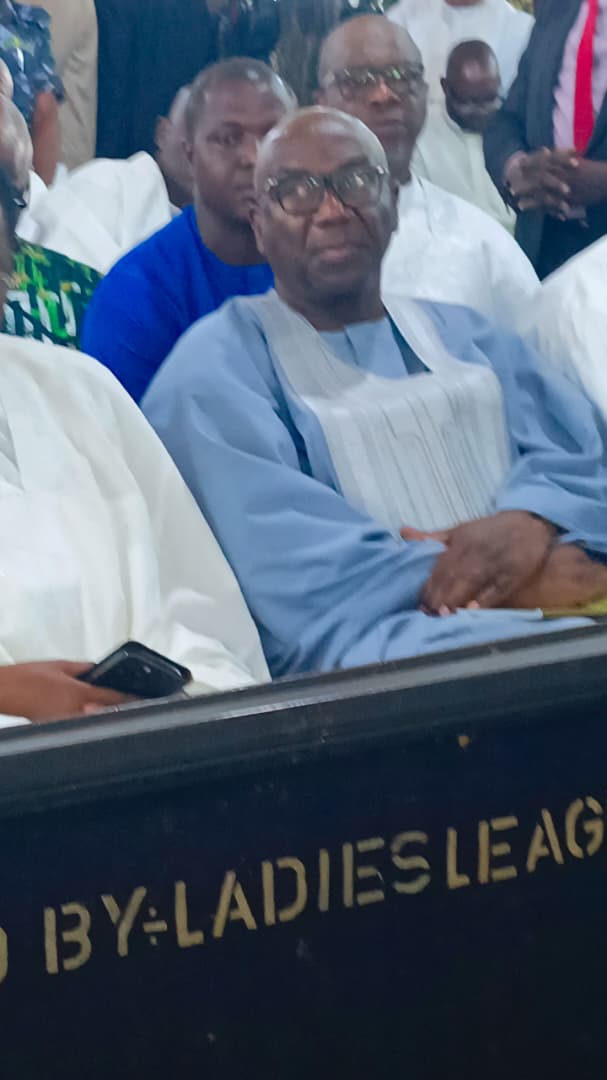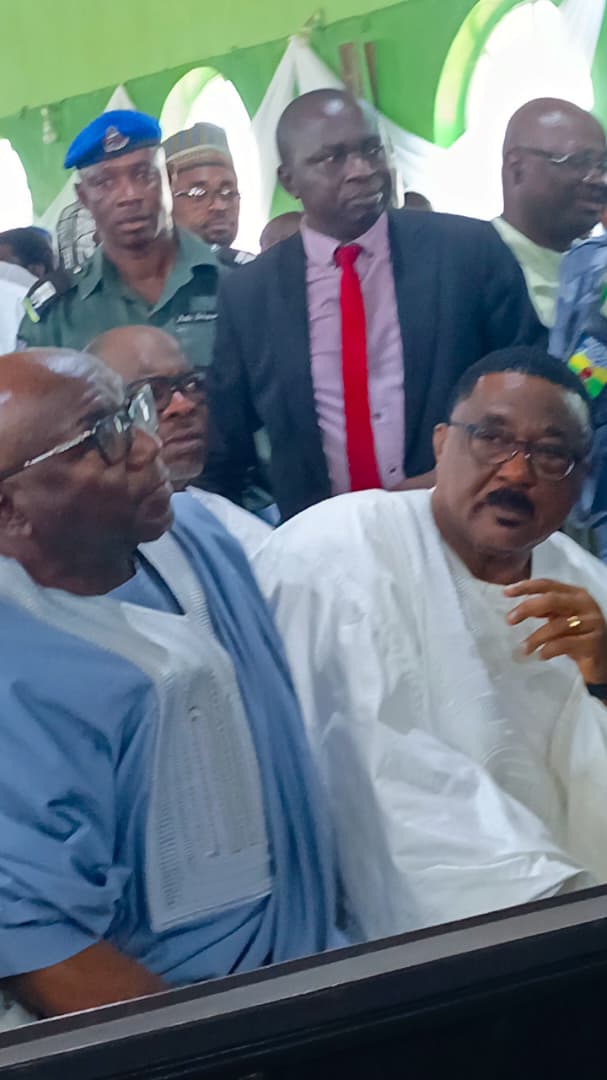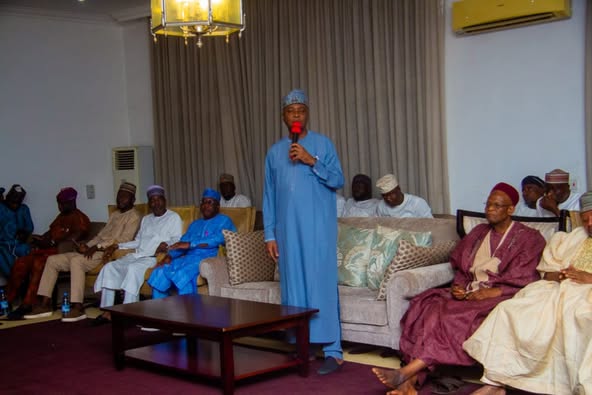Gov. Abdulrahman’s Grip on Kwara LGs Makes a Mockery of Supreme Court Ruling

By Abdulyekeen, Mohd Bashir.
It has been over a year since the Supreme Court of Nigeria delivered a landmark judgment affirming the financial autonomy of local government councils. That ruling was expected to usher in a new era of grassroots governance, where councils could independently manage their resources and respond to the needs of their people. Unfortunately, across the country, many State governments, including the Kwara State government under Governor Abdulrahman Abdulrazaq, have failed to comply with the apex court ruling. In reality, little or nothing has changed in how local governments are administered, especially in Kwara.
Despite the constitutional and judicial backing for administrative and financial autonomy for local councils, the Abdulrazaq administration continues to tighten its grip on Kwara’s 16 local government councils and has refused to stop tampering with the finances of the local councils. The state still operates the illegal Joint Allocation Account Committee (JAAC), which contravenes the apex court’s ruling. Financial autonomy is a cornerstone of effective grassroots governance because it ensures that councils can plan, implement, and account for development projects that directly affect their constituents.
By retaining control of local government allocations, the Abdulrazaq-led Kwara State government undermines this principle and weakens governance at the third tier of government and the closer tier of government to the people, the result of which we are all witnessing. Health and educational facilities across these local government areas are in deplorable condition. Roads have deteriorated into death traps, while many rural communities remain in perpetual darkness and disconnected from other parts of the State courtesy of lack or poor road network. Insecurity has worsened in several rural communities, leaving residents vulnerable and in a state of constant fear. Meanwhile, hardship and poverty continue to plague the lives of rural dwellers.
Long before the Supreme Court judgment, the state government’s major justification (as parroted by its officials) for running a joint account was the need to “redistribute” federal allocations so that weaker councils could meet their salary obligations. But this excuse no longer holds. Following the removal of fuel subsidy by the Tinubu administration, both states and local councils now receive significantly higher federal allocations. Kwara, for instance, has seen its monthly allocation rise from around ₦4–5 billion to as high as ₦7–8 billion. In fact, last month’s FAAC disbursement to the state reached ₦11 billion.
The 16 local councils in the state have also recorded substantial increments in their federal allocations. Councils that used to receive between ₦150 million and ₦200 million now get above ₦300 million and as much as ₦500-600 million monthly. Between January and June, 2025, Ilorin West and Ilorin South local government councils got a total of
₦3.747 billion and ₦3.040 billion respectively.
The FAAC figures for other LGs within the same 6-month period are:
Ilorin East LG: ₦3.013 billion.
Asa LG: ₦2.612 billion.
Offa LG: ₦2.413 billion.
Moro LG: ₦2.605 billion.
Edu LG: ₦3.138 billion.
Oyun LG: ₦2.375 billion. Baruten LG: ₦3.607 billion. Oke-Ero LG: ₦2.142 billion. Ekiti LG: ₦2.128 billion. Ifelodun LG: ₦3.234 billion. Irepodun LG: ₦2.662 billion. Isin LG: ₦2.145 billion. Kaiama LG: ₦2.966 billion. Pategi LG: ₦2.643 billion. With these massive inflows, each council can comfortably meet its salary obligations without relying on a redistribution scheme that has been the excuse of the State government for running the illegal JAAC account that those in power today condemned yesterday.
Sadly, the impact of these huge funds accruing to the local councils remains invisible at the grassroots. For example, in Ilorin East, you cannot see the impact of the humongous federal allocation the council has received in the last two years of the Tinubu Presidency. This situation is not unique to Ilorin East, it is the lived reality across the State. Citizens must begin to interrogate the allocation figures for their councils and ask whether they are commensurate with the state of infrastructure and socio-economic development in their communities.
Unfortunately, it is difficult to hold the council chairmen accountable under the current arrangement, as they do not have independence nor enjoy financial autonomy. Despite the Supreme Court ruling, the State government still interferes with the finances of the LGs. The State governmethat nt is still in charge of salary payment to local government employees through the consultants it directly engaged. This was the same arrangement that that the current set of people in power kicked against in the last administration. Additionally, the State government dictates the amount of funds the council chairmen can access for projects implementation. This illegal and dubious arrangement erodes the independence of councils, leaving the Chairpersons unable to exercise their mandate or respond to the needs of their constituents. In such a context, accountability at the grassroots becomes a mirage.
Governor Abdulrahman Abdulrazaq’s refusal to comply with the Supreme Court ruling undermines not only the rule of law but also the Federal government’s broader goal of strengthening democracy and leadership at the grassroots. With desperate governors like Abdulrazaq, it will be difficult and impossible for President Bola Ahmed Tinubu’s administration to achieve its vision of transparent and effective governance at the third tier of government. In Kwara, the Supreme Court judgment has been rendered meaningless, with Governor Abdulrazaq perpetuating the very status quo the ruling was meant to dismantle.
Civil society organisations, the media, professional bodies, and community-based groups in Kwara must not remain silent. They must intensify advocacy and hold the State government to account. The Supreme Court’s ruling affirming autonomy for the Councils must be obeyed. Anything short of full compliance is a disservice to democracy and grassroots development.
Irrespective of the perspective towards exercising our civic duties, we will not remain silent, bullied or emotionally blackmailed and shut from exposing the rots and gross mismanagement of our common patrimony by this administration.
Abdulyekeen, Mohd Bashir, a Kwara-born political analyst writes from Ibadan.




